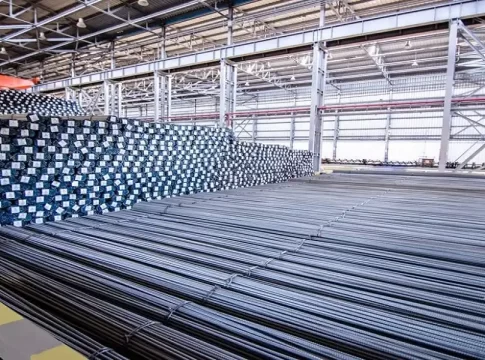In response to a formal complaint lodged by the European Steel Association (EUROFER), the European Trade Commission has commenced an anti-dumping investigation into the imports of hot-rolled flat steel originating from Egypt, India, Japan, and Vietnam. This notice was recently received by Ezz Steel, a leading steel producer based in Egypt, marking the beginning of a detailed inquiry aimed at determining whether these imports have been sold at unfairly low prices, thereby harming the European steel industry.
EUROFER, representing the interests of European steel producers, claims that the aforementioned countries have been exporting hot-rolled flat steel to the European Union at prices below their market value. This practice, known as dumping, can severely disrupt local markets by undercutting domestic producers. EUROFER argues that this has led to financial losses for European steel companies, job layoffs, and a decline in the overall competitiveness of the industry.
The European Trade Commission will investigate a range of factors to determine the validity of the dumping allegations. These factors include:
- Comparative Pricing Analysis: Examining the price at which hot-rolled flat steel is sold in the domestic markets of Egypt, India, Japan, and Vietnam compared to its export price to the EU.
- Cost of Production: Reviewing the production costs in the exporting countries to assess whether the steel is being sold below cost.
- Impact on the EU Industry: Analyzing how the alleged dumping has affected the European steel market, including impacts on prices, sales volumes, and employment within the sector.
In Egypt, the price of hot-rolled flat steel is influenced by several factors, including production costs, market demand, government policies, and the recent devaluation of the Egyptian pound (EGP). As of the latest data, the average price of hot-rolled flat steel in Egypt has been approximately $600 – $650 per metric ton. However, with the devaluation of the EGP, the cost of imported raw materials and energy has increased, potentially driving up the production costs in local currency terms.
When Egyptian hot-rolled flat steel is exported to Europe, several additional costs are factored in, including shipping and logistics, tariffs and duties, and exchange rates. With the devaluation of the EGP, Egyptian exporters might attempt to maintain competitive pricing in the international market by absorbing some of the increased costs domestically. Recent data indicates that the export price of Egyptian hot-rolled flat steel to Europe has been around $550 – $600 per metric ton. This suggests that despite the higher production costs in EGP terms, the export prices have remained competitive, potentially indicating dumping practices.
Historically, anti-dumping investigations by the European Trade Commission can result in several possible outcomes:
- Imposition of Anti-Dumping Duties: If the investigation concludes that dumping has occurred, the EU may impose anti-dumping duties on imports from the accused countries. These duties are designed to bring the price of the imported goods in line with fair market value, thereby protecting EU producers.
- Negotiated Settlements: In some cases, exporting countries may agree to raise their export prices voluntarily, avoiding the imposition of duties.
- No Action: If the investigation finds insufficient evidence of dumping or negligible harm to the EU industry, no further action will be taken.
The investigation occurs in a complex global economic environment. For instance, Saudi Arabia is expanding its mineral footprint to diversify its economy, as reported by Energy Intelligence, while companies like SGC E&C are securing large petrochemical contracts in the region, according to KED Global. In parallel, the Biden administration’s decision to lift a ban on U.S. sales of offensive weapons to Saudi Arabia, as reported by Reuters, signals significant geopolitical shifts that could affect global trade dynamics.
Moreover, economic pressures are not isolated to Europe and the Middle East. China’s tax authorities are intensifying scrutiny on companies facing budget crunches, as reported by Business Standard, and global markets are experiencing volatility, exemplified by the Nikkei 225 index’s significant drop, as noted in another report. In Africa, Nigeria’s President Tinubu is urging an end to protests against economic hardship, highlighting the widespread economic challenges faced by countries worldwide.
The comparative pricing analysis, considering the devaluation of the Egyptian pound, indicates a significant disparity between the domestic price of hot-rolled flat steel in Egypt and its export price to Europe. This supports the basis for the ongoing anti-dumping investigation by the European Trade Commission. The outcome of this investigation could lead to the imposition of anti-dumping duties, thereby protecting the European steel industry from unfair competition while potentially altering the market dynamics for exporters like Ezz Steel.
As the investigation progresses, stakeholders across the steel industry and related sectors will be closely monitoring developments. The findings will not only impact the companies directly involved but also shape the broader trade relations between the EU and the exporting countries. The European Trade Commission is expected to conduct a thorough and meticulous investigation before reaching a conclusion, ensuring that any measures taken are justified and balanced.


